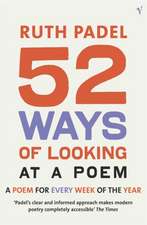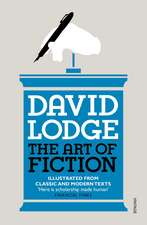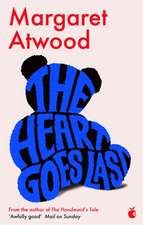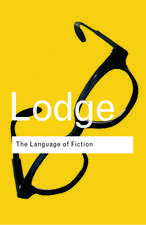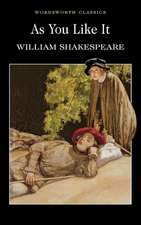The Tempest
Autor William Shakespeare Ilustrat de Gary Erskine, Jon Haward, Nigel Dobbyn Traducere de John N. McDonalden Limba Engleză Paperback – 16 sep 2009
Preț: 78.74 lei
Nou
Puncte Express: 118
Preț estimativ în valută:
15.07€ • 16.38$ • 12.67£
15.07€ • 16.38$ • 12.67£
Carte disponibilă
Livrare economică 31 martie-14 aprilie
Livrare express 14-20 martie pentru 30.09 lei
Preluare comenzi: 021 569.72.76
Specificații
ISBN-13: 9781906332297
ISBN-10: 1906332290
Pagini: 144
Ilustrații: Chiefly col. Illustrations
Dimensiuni: 167 x 244 x 15 mm
Greutate: 0.49 kg
Ediția:British English ed
Editura: CLASSICAL COMICS
Locul publicării:United Kingdom
ISBN-10: 1906332290
Pagini: 144
Ilustrații: Chiefly col. Illustrations
Dimensiuni: 167 x 244 x 15 mm
Greutate: 0.49 kg
Ediția:British English ed
Editura: CLASSICAL COMICS
Locul publicării:United Kingdom
Notă biografică
William Shakespeare (bapt. 26 April 1564 - 23 April 1616) was an English playwright, poet, and actor, widely regarded as the greatest writer in the English language and the world's greatest dramatist. He is often called England's national poet and the "Bard of Avon" (or simply "the Bard"). His extant works, including collaborations, consist of some 39 plays, 154 sonnets, two long narrative poems, and a few other verses, some of uncertain authorship. His plays have been translated into every major living language and are performed more often than those of any other playwright. They also continue to be studied and reinterpreted. Shakespeare was born and raised in Stratford-upon-Avon, Warwickshire. At the age of 18, he married Anne Hathaway, with whom he had three children: Susanna and twins Hamnet and Judith. Sometime between 1585 and 1592, he began a successful career in London as an actor, writer, and part-owner of a playing company called the Lord Chamberlain's Men, later known as the King's Men. At age 49 (around 1613), he appears to have retired to Stratford, where he died three years later. Few records of Shakespeare's private life survive; this has stimulated considerable speculation about such matters as his physical appearance, his sexuality, his religious beliefs, and whether the works attributed to him were written by others. Shakespeare produced most of his known works between 1589 and 1613.His early plays were primarily comedies and histories and are regarded as some of the best work produced in these genres. Until about 1608, he wrote mainly tragedies, among them Hamlet, Romeo and Juliet, Othello, King Lear, and Macbeth, all considered to be among the finest works in the English language. In the last phase of his life, he wrote tragicomedies (also known as romances) and collaborated with other playwrights. Many of Shakespeare's plays were published in editions of varying quality and accuracy in his lifetime. However, in 1623, two fellow actors and friends of Shakespeare's, John Heminges and Henry Condell, published a more definitive text known as the First Folio, a posthumous collected edition of Shakespeare's dramatic works that included all but two of his plays. The volume was prefaced with a poem by Ben Jonson, in which Jonson presciently hails Shakespeare in a now-famous quote as "not of an age, but for all time".
Caracteristici
This is the first edition of The Tempest to be developed by and for the RSC, the world's leading Shakespeare theatre company and it includes unique material to help the reader understand and enjoy Shakespeare on the stage as well as on the page
Illustrated with photographs of classic and unusual performances
Outstanding on-page notes which explain words and phrases unfamiliar to a modern audience, including the slang, political references and bawdy humour often ignored or censored in competing editions
Includes scene-by-scene summary, offering an easily understandable way into the play
Completely new introduction by Jonathan Bate, exploring the text and critical debates around it
Summary of the play's performance history at the RSC and elsewhere
Interviews with important Shakespearean directors Peter Brook, Sam Mendes and Rupert Goold discussing key productions at the RSC
Illustrated with photographs of classic and unusual performances
Outstanding on-page notes which explain words and phrases unfamiliar to a modern audience, including the slang, political references and bawdy humour often ignored or censored in competing editions
Includes scene-by-scene summary, offering an easily understandable way into the play
Completely new introduction by Jonathan Bate, exploring the text and critical debates around it
Summary of the play's performance history at the RSC and elsewhere
Interviews with important Shakespearean directors Peter Brook, Sam Mendes and Rupert Goold discussing key productions at the RSC
Cuprins
Preface PART ONE: SHAKESPEARE AND THE TEMPEST The Life and Work of William Shakespeare The Text of The Tempest PART TWO: A CASE STUDY IN CRITICAL CONTROVERSY Why Study Critical Controversies about The Tempest? Literary Study, Politics, and Shakespeare: A Debate George Will, "Literary Politics" Stephen Greenblatt, "The Best Way to Kill Our Literary Inheritance Is to Turn It into a Decorous Celebration of the New World Order" Sources and Contexts Michel De Montaigne, from "Of the Cannibals" William Strachey, from "True Repertory of the Wrack" Sylvester Jourdain, from "A Discovery of the Barmudas" Richard Hakluyt," Reasons for Colonization" Bartolomé De Las Casas, from "Letter to Phillip, Great Prince of Spain" New Daniel Wilson, "The Monster Caliban" New A Portfolio of Images of Caliban New E. M.W. Tilyard, From The Great Chain of Being Ronald Takaki, The "Tempest" in the Wilderness Shakespeare and the Power of Order Frank Kermode, from Shakespeare: The Final Plays Reuben A. Brower," The Mirror of Analogy: The Tempest" New Leah Marcus, "The Blue-Eyed Witch" The Postcolonial Challenge Paul Brown, " ‘This Thing of Darkness I Acknowledge Mine’: The Tempest and the Discourse of Colonialism" Francis Barker and Peter Hulme, "Nymphs and Reapers Heavily Vanish: The Discursive Contexts of The Tempest" New Aimé Césaire, Scenes from A Tempest Responding to the Challenge Deborah Willis, "Shakespeare’s Tempest and the Discourse of Colonialism" David Scott Kastian, " ‘The Duke of Milan /And His Brave Son’: Old Histories and New in The Tempest" Meredith Anne Skura, from "Discourse and the Individual: The Case of Colonialism in The Tempest" The Feminist Challenge Ania Loomba, from Gender, Race, Renaissance Drama Ann Thompson, " ‘Miranda, Where’s Your Sister?’: Reading Shakespeare’s The Tempest" New Writing about Critical Controversy in The Tempest
Recenzii
Review of the first edition: 'If you are looking for a model edition - by which I mean one that is concerned to honour the text and to explain the processes involved in editing - this is it. If I were ever again to undertake the editing of a Shakespeare play, I would keep Lindley's edition of The Tempest open beside me.' Peter Thompson
Review of the first edition: 'David Lindley's [The] Tempest is the best edition on the market and the paperback is a snip.' Studies in Theatre and Performance
Review of the first edition: 'Lindley aims both to represent and to explain the range of readings given the play in its theatrical and critical afterlives. His edition meets the high standards of the series in an exemplary manner, offering an especially fine introduction that focuses on the elusiveness of The Tempest, a feature that has made it central to late-twentieth-century criticism.' Barbara Hodgdon, Studies in English Literature
Review of the first edition: 'David Lindley's edition of The Tempest is easily the most outstanding version of this ostensibly straightforward yet hugely teasing play produced over the last thirty years. Its precise and scrupulous commentary notes are careful to the variety of ways the text can be spoken on stage. Its notes on the music and songs are admirably evocative, and its economical account of the huge range of critical views will send thousands of readers out in fruitful chases after the play's own multitudinous interests.' Andrew Gurr, editor, New Variorum 'Tempest'
Review of the first edition: 'David Lindley's [The] Tempest is the best edition on the market and the paperback is a snip.' Studies in Theatre and Performance
Review of the first edition: 'Lindley aims both to represent and to explain the range of readings given the play in its theatrical and critical afterlives. His edition meets the high standards of the series in an exemplary manner, offering an especially fine introduction that focuses on the elusiveness of The Tempest, a feature that has made it central to late-twentieth-century criticism.' Barbara Hodgdon, Studies in English Literature
Review of the first edition: 'David Lindley's edition of The Tempest is easily the most outstanding version of this ostensibly straightforward yet hugely teasing play produced over the last thirty years. Its precise and scrupulous commentary notes are careful to the variety of ways the text can be spoken on stage. Its notes on the music and songs are admirably evocative, and its economical account of the huge range of critical views will send thousands of readers out in fruitful chases after the play's own multitudinous interests.' Andrew Gurr, editor, New Variorum 'Tempest'

